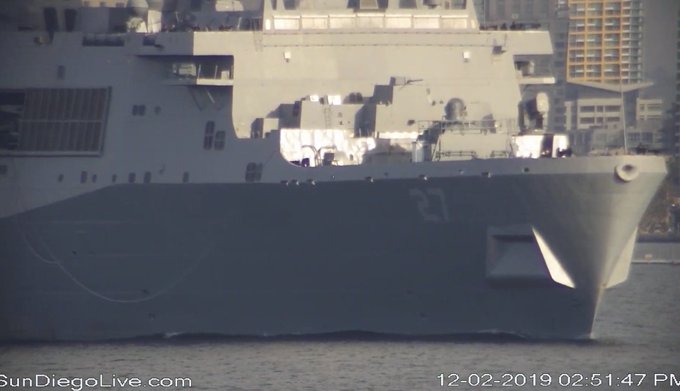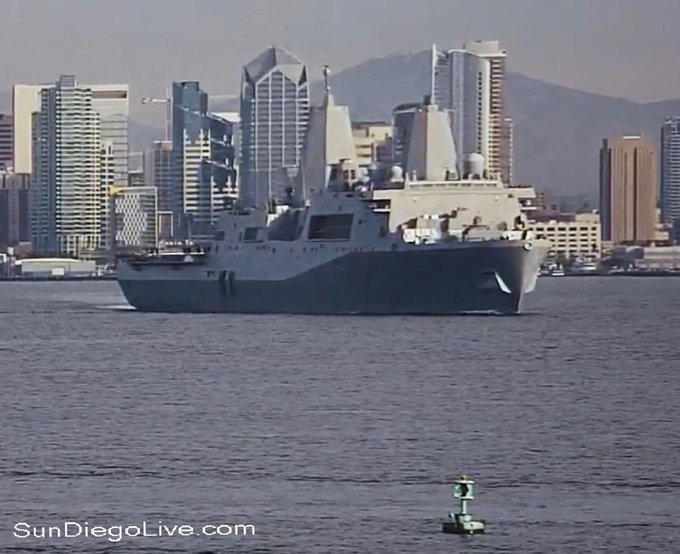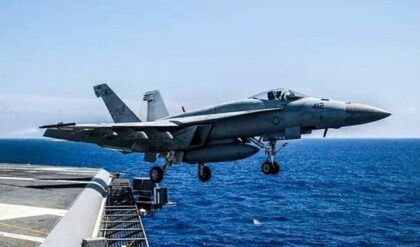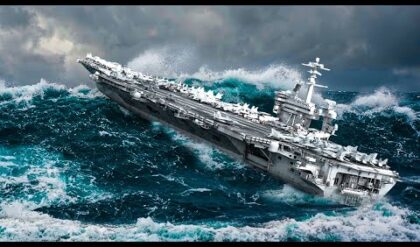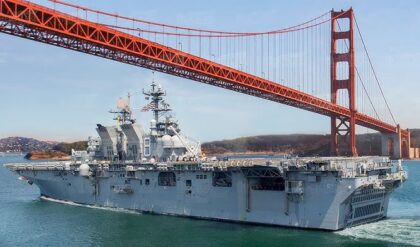The laser represents a large leap in power output over previous systems and is hardened to operate in the harsh maritime environment.

www.twz.com
As expected, the San Antonio class landing platform dock USS Portland has left its homeport in San Diego, California sporting its new high-energy laser directed energy weapon from Northrop Grumman. The War Zone
was first to identify that this was the mysterious system that the defense contractor was shipping to San Diego by barge from Redondo Beach back in October.
Twitter account WarshipCam, which scans public webcams around the world for naval vessels, spotted Portland and her newest system heading out from San Diego on the SunDiegoLive.com stream on Dec. 2, 2019.
The Navy had first announced its plans to install the laser on this ship as part of the Solid-State Laser Technology Maturation (SSL-TM) program in 2018.
At-sea testing was originally scheduled to begin in the fourth quarter of the 2019 Fiscal Year, which ended on Sept. 30, 2019.
At the time of writing, neither the U.S. Navy nor Northrop Grumman has released a statement regarding Portland and its participation in the SSL-TM program.
We have reached out to the Navy to hopefully get more information about the upcoming tests and the service’s overall plans for the project at present.
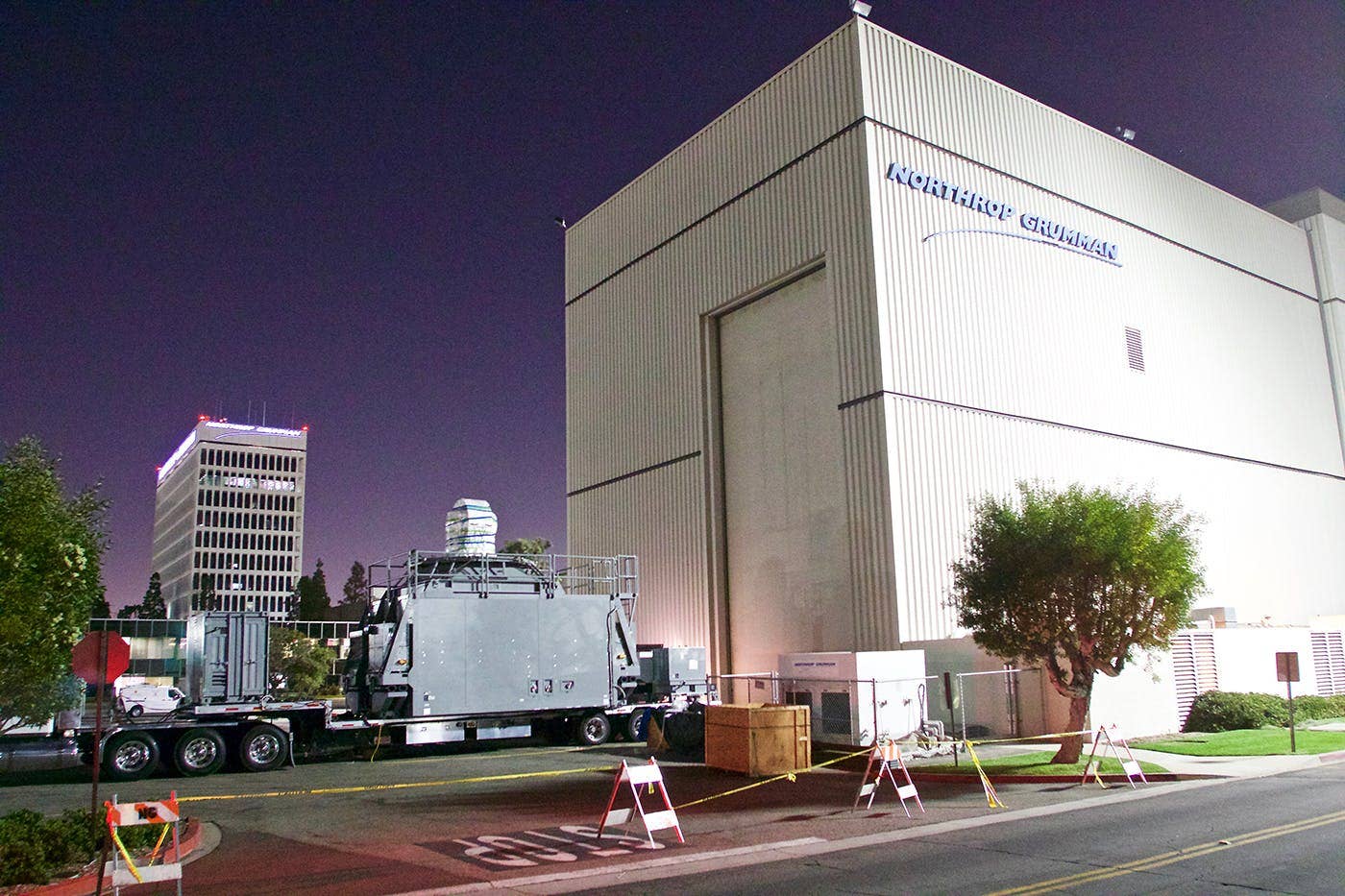
The SSL-TM prototype at Northrop Grumman’s facility in Redondo Beach, California in October 2019., Matt Hartman/Shorealonefilms.com
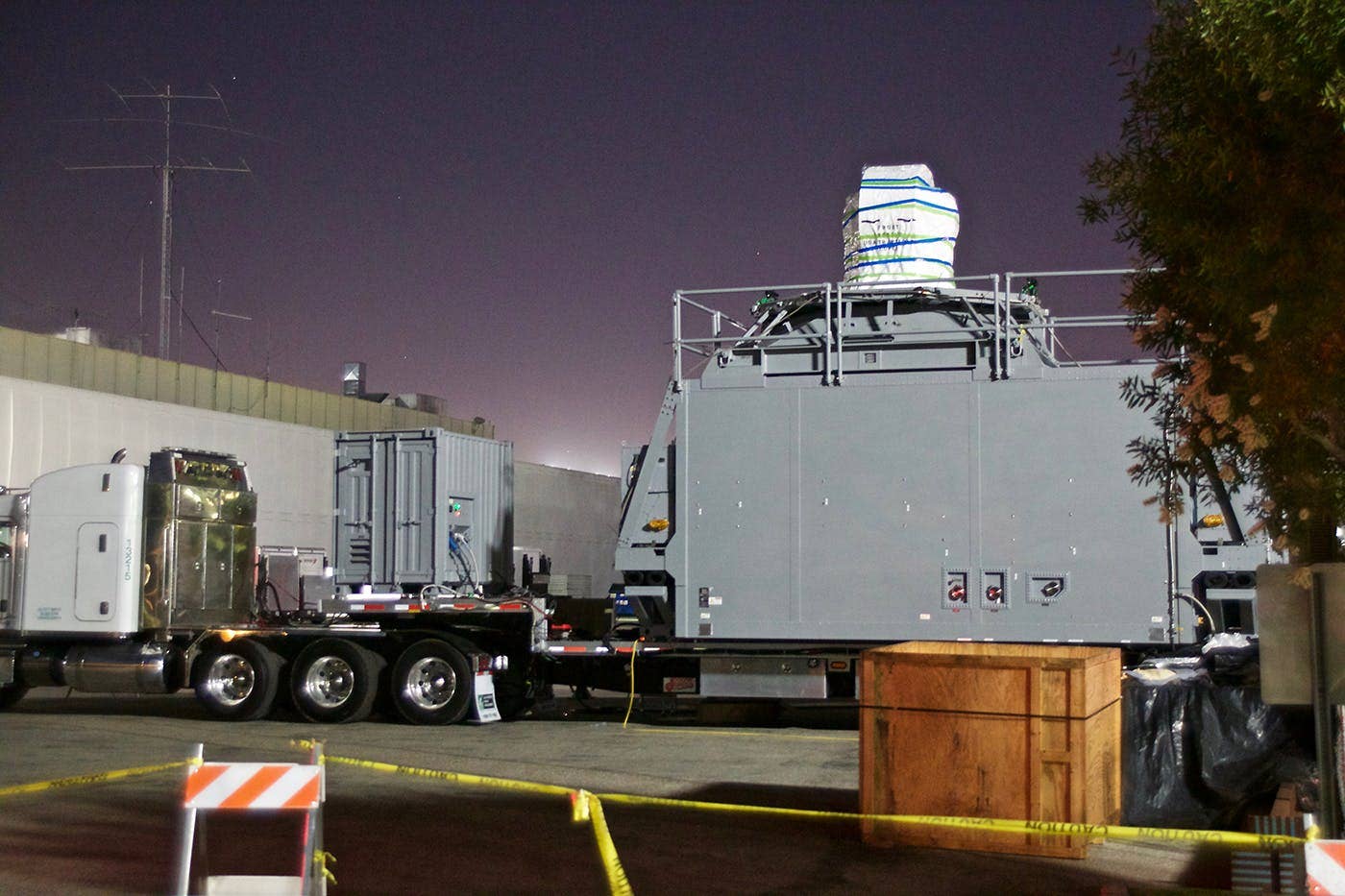
Matt Hartman/Shorealonefilms.com
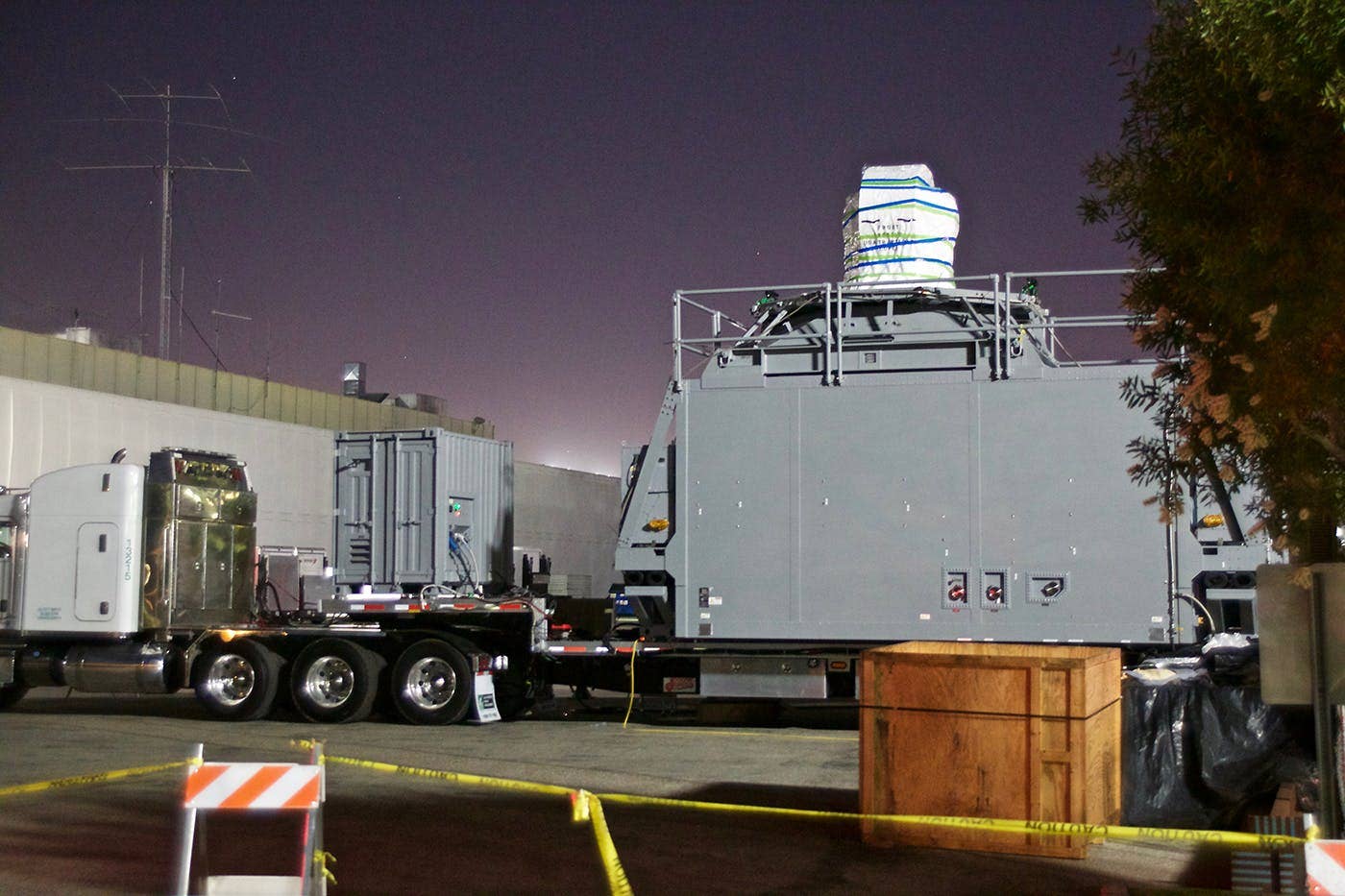
Matt Hartman/Shorealonefilms.com
Regardless it is a significant and exciting achievement to see the SSL-TM laser go to sea for the first time.
The Navy envisions the system as being able to primarily provide enhanced defense against swarms of small boats and unmanned aircraft, as well as serving as a stepping stone to more powerful lasers in the future.
SSL-TM is one of four programs that makes up the Navy Laser Family of Systems that the service is working on at present.
The Arleigh Burke class destroyer USS Dewey also recently appeared in San Diego with what appears to be the Optical Dazzling Interdictor, Navy (ODIN) system, something The War Zone was also first to report on and that you can read about more here.
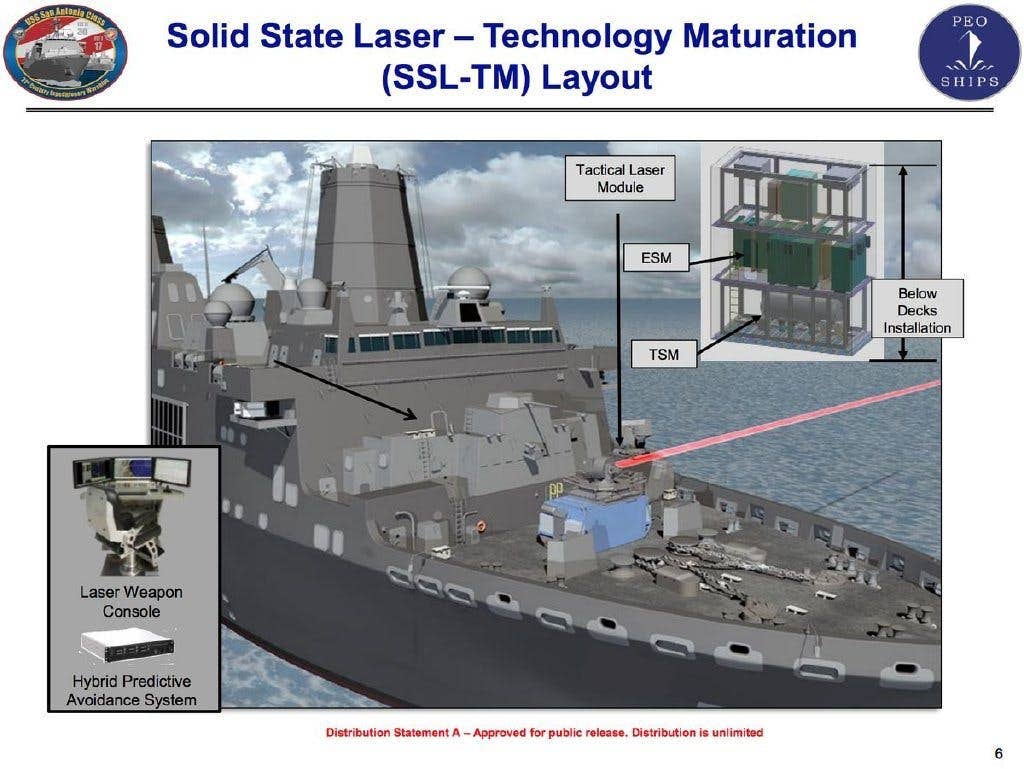
A graphic depicting the components of the SSL-TM laser installation on the Portland., USN
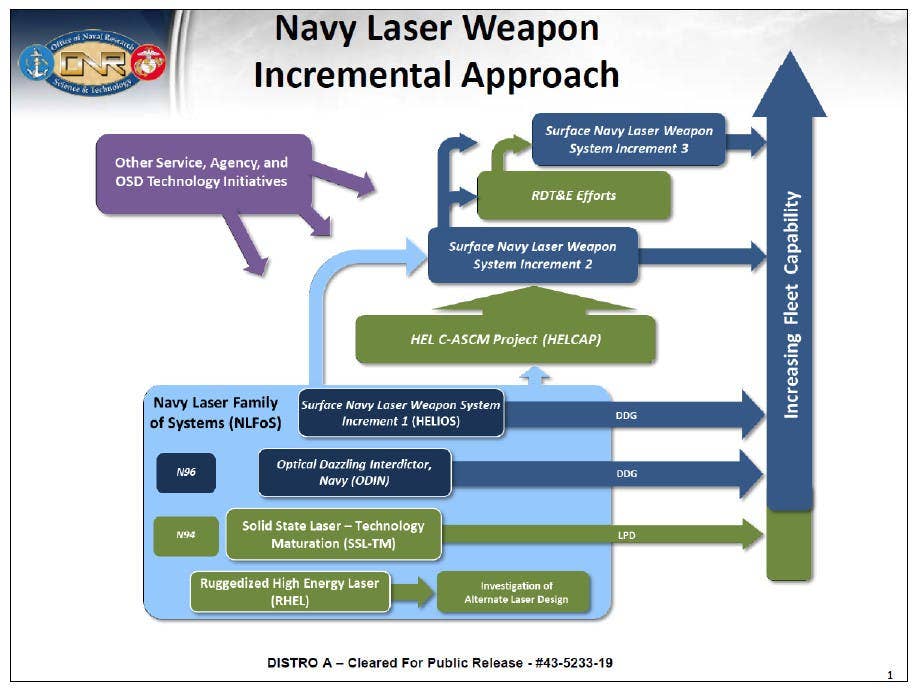
An infographic showing the Navy Laser Family of Systems and how the Navy sees those programs supporting follow-on laser developments., USN
Of course, this isn’t the first time the Navy has installed a laser weapon system on a ship, having already reached that milestone with the AN/SEQ-3 Laser Weapon System (LaWS) on the USS Ponce, an Austin class landing platform dock-turned-sea base that operated primarily in the Middle East until 2017.
SSL-TM is a follow-on to the LaWS, as well as the Maritime Laser Demonstration (MLD) effort, which ran between 2010 and 2011. Northrop Grumman developed both LaWS and MLD.
However, the SSL-TM laser promises to be significantly more powerful than either of these previous systems, being in the 150-kilowatt class.
The prototype laser developed under the MLD program was in the 15-kilowatt class, though Northrop Grumman did also demonstrate a system consisting of multiple lasers that created a single beam with a combined power of 105 kilowatts. The LaWS laser was in the 30-kilowatt class.
The SSL-TM testing on Portland will be important to demonstrate that the various components of the new system, including the beam director and the power generation and cooling equipment, work as intended in the harsh maritime environment and can sustain routine operation of the laser at full power.
The Navy has said in the past that this will provide valuable information for crafting improved prototypes and eventually operational systems, including through follow-on programs that are already in the works.
It will also offer an opportunity to develop and refine concepts of operation around using the higher-powered laser.
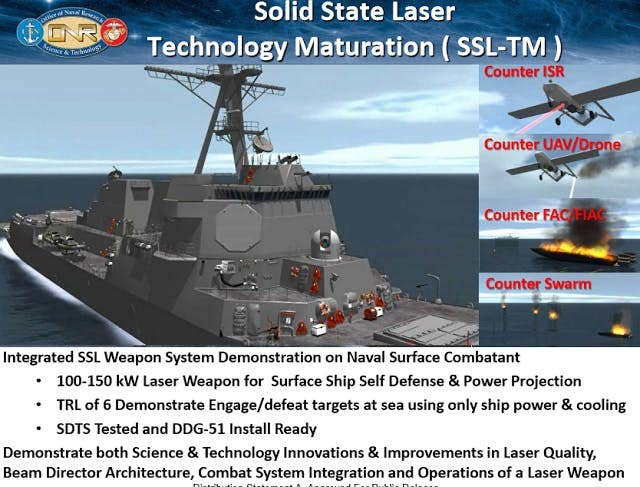
A now-dated briefing slide on the SSL-TM program showing various target sets the Navy envisioned for the laser.
Before choosing the Portland, the Navy had planned to use the decommissioned Spruance class destroyer USS Paul F.
Foster, which now serves as the service’s designated Self Defense Test Ship, for the SSL-TM program.
The plan in the past has also been to eventually transition a version of the system onto Arleigh Burke class destroyers., USN
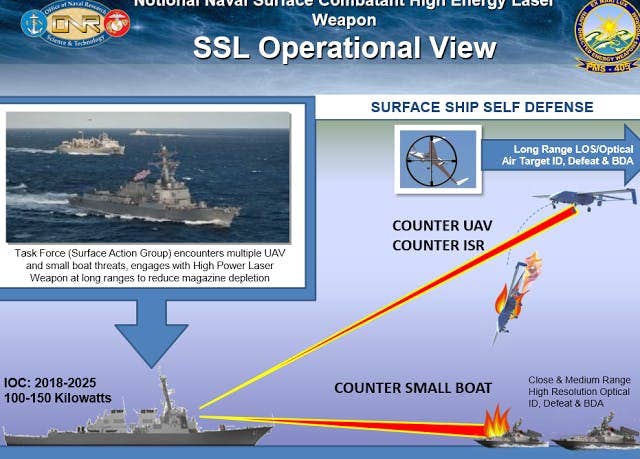
Another briefing slide detailing operational applications for the SSL-TM laser., USN
“We don’t want to wait for the next step to learn this stuff that we can learn now,” Frank Peterkin, the Navy’s senior directed energy technologist, told USNI News in February 2019.
“This won’t change just because we go to a higher power laser. So we can burn down a lot of this operational risk, not just for the interactions and the interface but also being in close proximity to other weapons.
And how do you coordinate, how do you decide what to shoot and when, things like that.”
Whatever happens during the upcoming tests, Portland has now become a key part of the next major chapter in the Navy’s directed energy efforts.
UPDATE: 12/4/2019—
U.S. Navy Lieutenant J.G. Rachel McMarr, a Pacific Fleet spokesperson, has provided the following statement regarding Portland and the SSL-TM program:
“The Solid State Laser – Technology Maturation Laser Weapon System Demonstrator (SSL-TM LWSD) is installed onboard USS Portland (LPD-27).
However, as a matter of policy, we will not discuss installation specifics of the LWSD system, or planned or potential future operations.”
